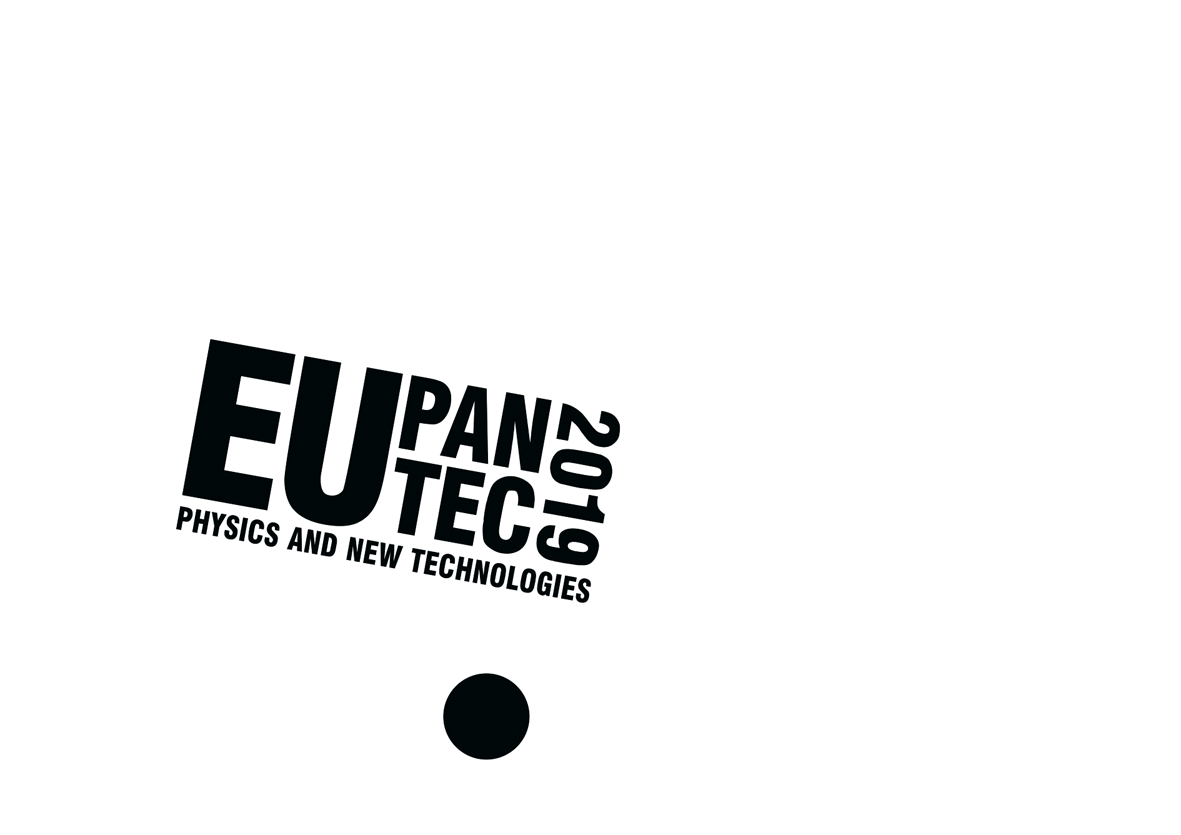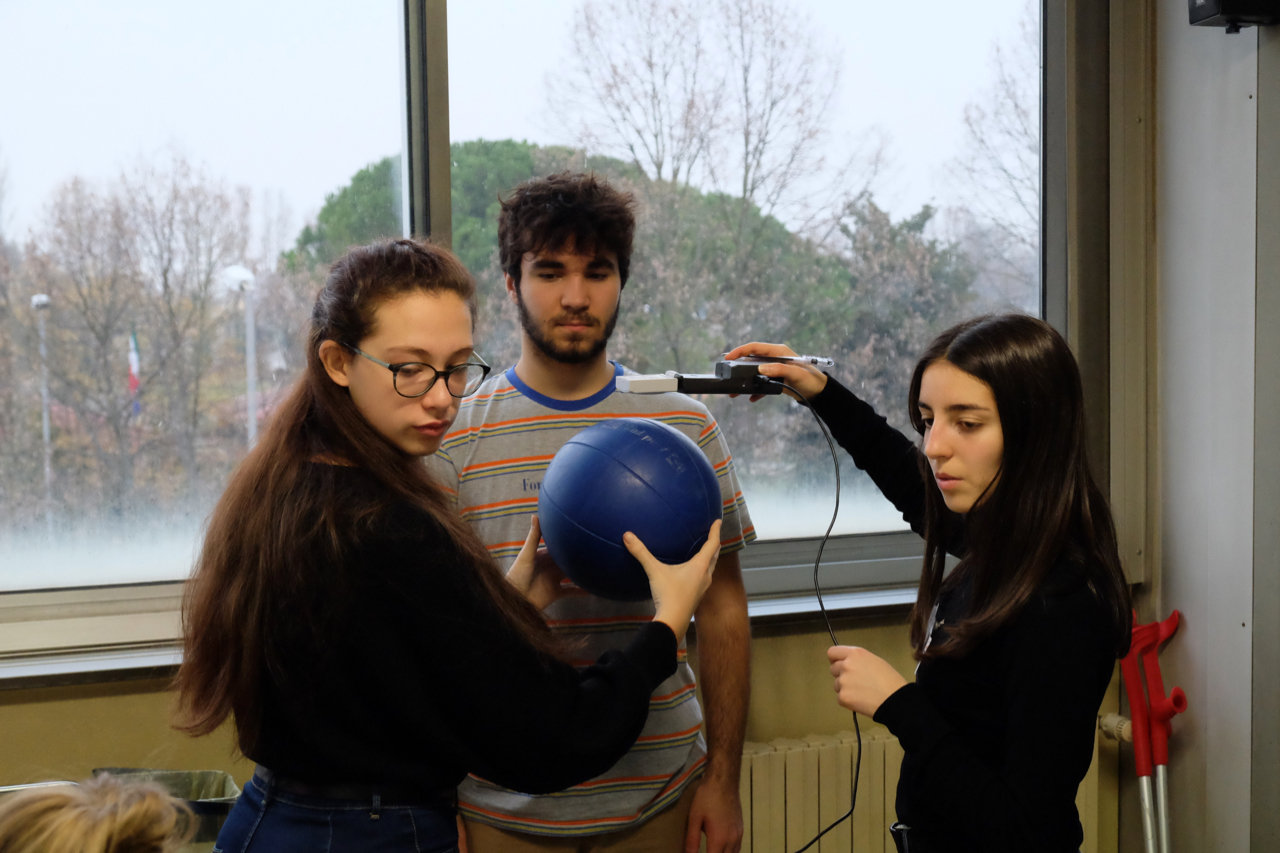New batch of Eupantec box
07/01/23 14:39

In a Polish school, a partner in our project, another batch of 9 measurement systems was built to be used during physics experiments for the needs of the school laboratory. Each system is equipped with an OLED screen for presenting the measurement results. Inside the casing printed on a 3D printer there is a sensational and cheap Raspberry Pi Pico microcontroller. The built system exceeds in many respects the possibilities of similar solutions of tycoons providing similar solutions to schools around the world. The system allows for very easy and safe connection of many sensors and peripheral devices operating in the popular Grove standard. It also gives students the opportunity to combine learning physics and programming in Python. Thanks to this equipment, the student can learn in practice what "Physical computing" means. Experiments have been saved in the microcontroller's memory, but their list is not closed, you can add new ones. You can use even much more than 6 sensors/peripherals at the same time. It is very easy to make this system mobile. 6 copies also have a GPS to record the location of the measurement. All measurement results can be saved on a microSD card in the form of a database. The cost of the device is incomparably lower than that of the competition and the possibilities are greater. This version without BlueTooth and WiFi. The next batch in preparation will be around EUR 8 more expensive and will also have wireless capability. Schools interested in implementing these measurement interfaces can use the 3D-ready EUPANTEC BOX measurement interface housing (the cost of components is about EUR 20) and the sensor housing (optical gate, ultrasonic distance sensor). You can also find instructions for building your own thermal imaging camera there.
The cost of building sensors often does not exceed a few Euros
It is also worth using our ebook, which contains descriptions of many experiments to be carried out using our kits.
Read more here: http://eupantec2019.eu/page-3/ Read More…
Teachers Conference in Kozienice
23/08/22 14:47

On August 29, at 13:00 in Kozienice, a conference for teachers of physics, computer science and science, devoted to the use of new technologies in teaching will be held. The following points are included in the conference schedule:
Discussion of examples of the use of microcontrollers and sensors to perform experiments in physics,
Using the Phyphox mobile application to perform measurements,
Examples of measuring systems for testing the environment in the field,
Building your own, cheap measuring devices using 3D printing and comparing them to commercial solutions,
Discussion.
Read More…
"Waves" in Povoa de Varzim
20/05/22 14:26

From 16 to 21 May 2022, students and teachers participated in the Erasmus + Eupantec2019 "Physics and New Technologies" project meeting at the "Rocha Peixoto" school in Povoa de Varzim, Portugal. The main purpose of the meeting was to work on experiments related to waves, using new technologies, Raspberry Pi Pico and ESP32 microcontrollers, sensors, mobile applications and Vernier and Pasco laboratory equipment. It just so happens that the Portuguese partner school in Povoa de Varzim is located just a few hundred meters from the Atlantic shore, however, the subject of the meeting includes not only sea waves, but also seismic waves, radio waves and sound waves. Each country has prepared interesting experiments. A very interesting event was the workshop in the laboratories of the Faculty of Civil Engineering of the University of Porto. For example, a scientist at the university, Dr. Eduardo Costa conducted experiments for the participants in the acoustics laboratory, which were used to study the reverberation time and disturbance of sound waves. In this laboratory, among other things, work on soundproofing materials and testing solutions for construction, which significantly reduce noise, are carried out.
Read More…
Electricity in Fürstenfeldbruck-Film
18/03/22 14:10
Below the film prepared by Fred from Viscardi Gymnasium during Electricity Meeting in Fürstenfeldbruck 8-13.03.2022.
Meeting in Fürstenfeldbruck
17/03/22 14:58

From March 7 to March 12, 2022, a group of students and teachers participating in the Erasmus + Eupantec2019 project "Physics and New Technologies" stayed in Fürstenfeldbruck at the Viscardii Gymnasium secondary school. The students participated in the workshops and were partly co-leaders. The topic of the meeting was "Electricity and Magnetism". The aim of the meeting was to work on physical experiments focused on the subject of electricity and magnetism. New technologies were used in the workshops: Raspberry Pi Pico microcontrollers with MicroPython, ESP32 and Arduino, sensors, smartphones (Phyphox application) and laboratory equipment for electrical, resistance, electricity consumption and magnetic field measurements, among others.
Read More…
Energy in Kozienice
17/10/21 14:18

From 11. of October to 16. of October 2021 in Zespół Szkół Nr 1 im. Legionów Polskich in Kozienice, there were 24 students and 8 teachers from schools from France, Portugal, Germany and Italy. The meeting was also attended by 13 students from Kozienice and several Polish teachers.
The purpose of the meeting was to work together on the Erasmus + Eupantec2019 "Physics and New Technologies" project and to implement subsequent tasks included in the project plan.
This very advanced and ambitious project set very high requirements for the participants.
Each of the participating schools prepared some activities for the workshops in Kozienice, although the main burden of preparing the workshops rested with the hosts of the meeting.
The title of the meeting in Kozienice is "Energy", as the facility in Kozienice cooperates with Enea and the nearby power plant. In connection with COVID-19, we also caught up with France in the project and included the outstanding topics: Environment and Society.
Read More…
Teachers Training Fürstenfeldbruck
04/10/21 08:28

The Training training (C7) took place from 09. of September 2021 to 25. of September 2021 at Viscardi Gymnasium Fürstenfeldbruck. The training was attended by physics and computer science teachers who came to Munich to build their knowledge necessary to continue the Erasmus + project "Physics and New Technologies", the idea of which is related to the use of new technologies in teaching physics. The subject of the training was very ambitious. The Polish team conducted training on the use of Micropython, Raspberry Pi Pico microcontrollers and sensors to perform physics experiments. Read More…
Good news from Poitiers
09/07/21 14:29

On June 25, at Poitiers LP2I, the project coordinator Paweł Boryczka EUPANTEC2019 met with the school management and the French project coordinator. The purpose of the meeting was to discuss the objective problems caused by the epidemic situation and staff changes, which had a large impact on the implementation of the project. The perspective of activities for the next school year was also discussed. We are pleased to announce that we managed to reconstruct the team of teachers implementing the project. We warmly welcome 3 more French teachers who agreed to be part of our team. Many thanks to the Director Mr Pierre Raffi and the coordinator Mrs Valérie Deforge. Read More…
Meeting in Padova
15/12/19 22:20

Pupils and teachers from partner schools from Portugal, Germany, France and Poland participating in the Erasmus+ Eupantec2019 project from 09.12-14.12.2019 stayed at the "Istituto Istruzione Superiore Pietro Scalcerle" in Padua in northern Italy, in the Veneto region, in a school with 150 -year history to implement the first mobility activity under the working name "Padova Motion"
The purpose of the meeting was to explore new technologies that can be used in teaching physics and to exchange experiences and ideas.
For 4 days, training sessions were held as part of workshops in the physics laboratory, as well as education during educational trips to the University of Padua, the "Museum of the history of physics" and the historical astronomical observatory "La Specola".
Padua was an excellent choice to implement the subject of "Movement" because it was in this city that he lectured and conducted his Galileo experiments, here Copernicus took his education. The first woman in history (the 17th century) also studied here. Students could learn about the rich resources of teaching aids used by physicists, astronomers from the 16th century, they even saw the preserved platform from which Galileo taught.
Read More…

